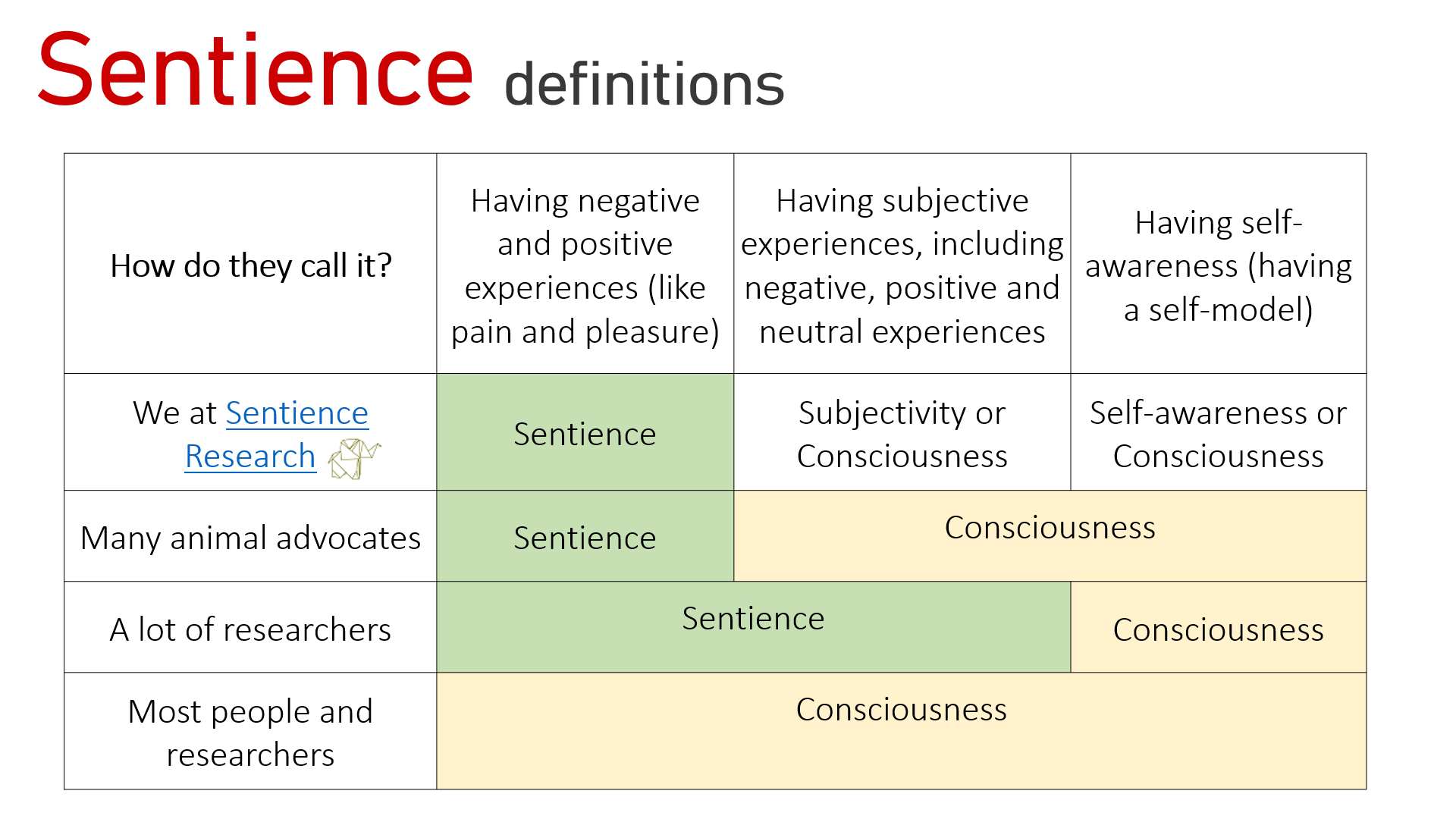
» Sentience is a concept very close to the idea of consciousness, but sentience is, in our opinion, focused on what is more morally relevant. Sentience implies the capacity for positive or negative experiences, such as pleasure and pain, suffering and enjoyment.
» Sentience is a relatively new (polysemic) word that is commonly used to refer to the ability to experience pleasure and / or pain.
“Consciousness is exciting intellectually, but sentience is what is morally relevant.”
» We use a definition of “sentience” that refers to subjective experiences that can be positive or negative, such as pleasure and pain, or enjoyment and suffering, and we leave out of the definition those experiences that are indifferent. That is why we say that sentience focuses on what is morally relevant.
sentience-research.org/sentience
Sentience is the ability to have pleasurable or painful sensations, which implies having preferences and interests (avoiding pain, seeking pleasure). There is no doubt that sentience has moral relevance.
Subjectivity (or Consciousness) is the ability to experiment. Within experimentation I include the ability to feel pleasure and pain, but I also include having a point of view, being someone, perceiving, having “consciousness“.
manuherran.com/how-to-recognize-sentience
Manu Herrán: Let’s start with the very beginning. I’ll use the word sentience for experiences of suffering and enjoyment, and consciousness for subjective experiences in general. Not only pain and pleasure but, for instance, to perceive. Does it match your terminology?
Magnus Vinding: Yes.
sentience-research.org/on–theories–of–sentience-a-talk–with-magnus-vinding
Sentience is the capacity to feel, perceive, or experience subjectively. Eighteenth-century philosophers used the concept to distinguish the ability to think (reason) from the ability to feel (sentience). In modern Western philosophy, sentience is the ability to experience sensations (known in philosophy of mind as “qualia”)
…
Sentience is a minimalistic way of defining consciousness, which otherwise commonly and collectively describes sentience plus other characteristics of the mind.
…
In the philosophies of animal welfare and rights, sentience implies the ability to experience pleasure and pain
en.wikipedia.org/wiki/Sentience
See also:
Recent Comments